NICABM – How to Work with the Patterns That Sustain Depression
$197.00 Original price was: $197.00.$39.90Current price is: $39.90.
NICABM How to Work with the Patterns That Sustain Depression Course [Instant Download]
📚 PROOF OF COURSE



1️⃣. What is How to Work with the Patterns That Sustain Depression:
NICABM’s course, “How to Work with the Patterns That Sustain Depression,” offers a groundbreaking approach to understanding and dismantling the complex patterns that underpin depression. This course is designed to equip practitioners with the knowledge and strategies needed to effectively intervene in cycles of depression that can immobilize clients.
Through this program, learners will gain insights into the critical thought patterns and trauma impacts that perpetuate depressive states. Utilizing the latest research and therapeutic techniques shared by over 15 leading experts, this course provides a comprehensive toolkit for helping clients navigate their way out of the grip of depression, enhancing their motivation, and preventing relapse. Each session is structured to offer practical, actionable strategies that can be immediately applied to therapy practices.

2️⃣. What you will learn in How to Work with the Patterns That Sustain Depression:
In this transformative course, you will learn:
- Understanding Depression’s Core Patterns: Grasp the underlying factors like low motivation and harsh self-narratives that sustain depression.
- Strategic Intervention Techniques: Apply effective strategies to disrupt depressive thoughts and emotional triggers.
- Trauma-Informed Approaches: Learn how trauma affects depression and ways to address it in therapeutic settings.
- Preventing Relapse: Equip yourself with essential skills to help clients maintain their progress and prevent future depressive episodes.
- Expert Insights: Gain knowledge from top thought leaders in the field, enhancing your therapeutic techniques with their proven strategies.
These lessons are designed to not only enhance your clinical skills but also to empower your clients to take active steps towards recovery.
3️⃣. Who is NICABM?

NICABM (National Institute for the Clinical Application of Behavioral Medicine) is a pioneer in providing advanced training for health and mental health practitioners. Founded in 1989 by Ruth Buczynski, PhD, NICABM has spent over three decades at the forefront of behavioral medicine education.
The institute is renowned for its commitment to integrating the latest psychological research with practical clinical applications. Through its courses, NICABM helps practitioners develop skills that are crucial in addressing complex psychological issues, including depression, trauma, and anxiety.
The focus is on innovative and effective strategies that are designed to improve patient outcomes and advance the field of behavioral medicine. NICABM’s dedication to high-quality, impactful education has made it a trusted resource for over a million practitioners worldwide.
4️⃣. Who should take this course?
- Mental Health Professionals: Psychologists, counselors, and therapists seeking to deepen their understanding of depressive disorders.
- Medical Practitioners: Psychiatrists and primary care physicians who deal with patients experiencing depression.
- Social Workers and Case Managers: Professionals who require effective strategies to support their clients’ mental health.
- Students and Academics: Individuals in educational programs focusing on psychology and mental health.
- Any Practitioner Focusing on Trauma and Depression: Those looking to enhance their toolkit with specialized knowledge in managing depression related to trauma.
This course is ideal for any healthcare provider aiming to expand their expertise in treating depression with innovative and research-backed methods.
5️⃣. Frequently Asked Questions:
Q1: What is the cognitive approach to treating depression?
The cognitive approach focuses on identifying and changing negative thinking patterns and beliefs that contribute to depression. By addressing these cognitive distortions, therapists help clients develop healthier ways of thinking, which can improve their mood and behavior.
Q2: What strategy might be used in cognitive behavior therapy for depression?
A common strategy in cognitive behavior therapy (CBT) for depression involves the use of thought records. Clients are taught to track their negative thoughts, analyze them for accuracy, and reframe them in a more positive or realistic light.
Q3: What are the two main goals of cognitive behavioral therapy for depression?
The two main goals of CBT for depression are to alter behavioral patterns that contribute to depression and to change unhelpful thinking that leads to depressive symptoms. This dual focus helps improve clients’ coping mechanisms and overall mental health.
Q4: Can CBT alone treat depression?
CBT alone can be highly effective for treating mild to moderate depression. For more severe cases, CBT might be used in conjunction with medication or other therapies to enhance treatment effectiveness.
Q5: What is the difference between a counselor and a therapist?
The terms ‘counselor’ and ‘therapist’ often overlap, but generally, a counselor provides guidance on specific issues and helps clients develop personal insights. A therapist may work with deeper psychological issues and can utilize various therapeutic approaches beyond counseling techniques.
Be the first to review “NICABM – How to Work with the Patterns That Sustain Depression” Cancel reply
Related products
Health & Medical
Personal Development
Personal Development
Seduction & Love
Personal Development
Seduction & Love
Personal Development
Personal Development



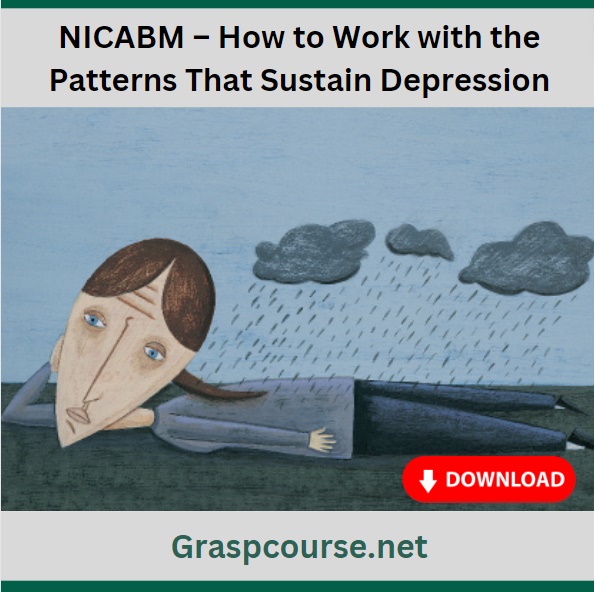


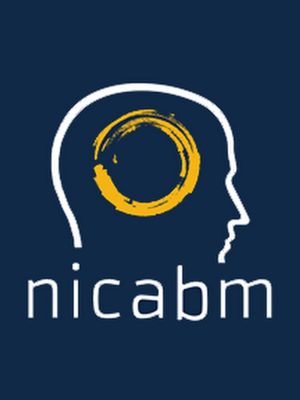
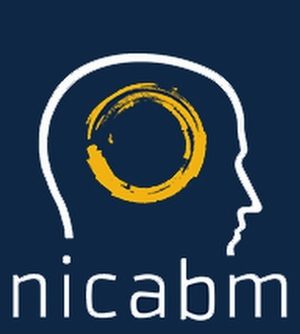
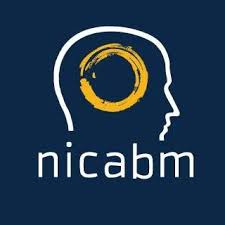
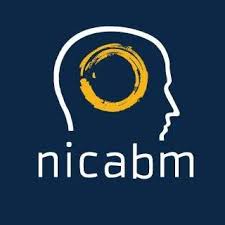


Reviews
There are no reviews yet.